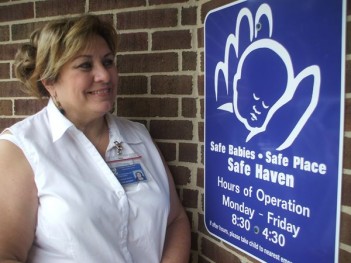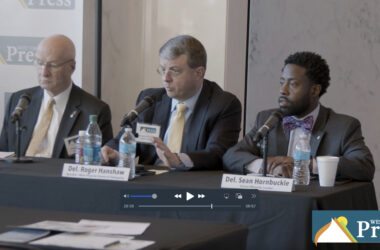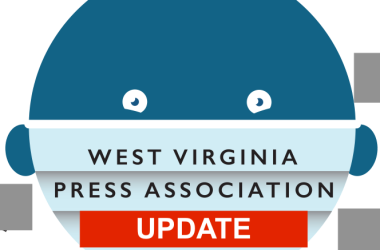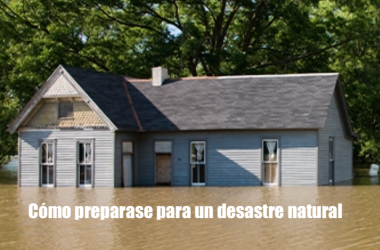
Jefferson County Health Department administrator Christina Jackson admires the new sign advertising the agency as a Safe Haven, as required by state law, where parents can anonymously leave an unwanted baby up to 30 days old.
CHARLES TOWN, W.Va. — By state statute, parents can anonymously leave an unwanted baby up to 30 days old at a hospital or health care facility, provided the child has not been harmed or abused, but Jefferson County Health Department administrator Christina Jackson is afraid too many people may not know about the Safe Haven law.
Public education is a big part of the reason she decided to put up a sign at the agency advertising the location as a safe haven, said Jackson, who has been on the job about three months but has spent almost half of her professional career in public health.
“But it’s also the right thing to do, since we’re required by the state as part of the Safe Haven law,” she said.
In white lettering, the bright blue sign reads, “Safe Babies, Safe Place, Safe Haven.” It lists the agency’s office hours (Monday through Friday, 8:30 a.m. to 4:30 p.m.) and also explains that the baby can be taken to the nearest emergency room if the health department is closed.
As a result, agency employees now check each door as soon as they arrive in the morning, Jackson said.
Although there may never be a need, the agency already has some baby items such as blankets, she said.
In the case a baby is left, a 911 call would be made so that the child could be picked up in an ambulance and transported to a hospital for a checkup.
Not unlike most other states, West Virginia’s law allows parents to remain anonymous and agency employees must also respect that desire, Jackson said.
The state Department of Health and Human Resources Child Protective Services Division is ultimately in charge of the baby. By state law, the baby is considered abandoned and can be eligible for adoption.
Jackson said the idea for this law is not new, dating back to the late 1990s when an increasing number of newborn babies were being abandoned – sometimes in places as objectionable as a waste receptacle.
This type of law is known by different names nationally, including Baby Moses, Safe Place, Safe Arms for Newborns, Safe Delivery and Safe Surrender.
The goal is to allow parents to relinquish custody of unharmed newborn infants without fear of prosecution. Prior to this change, parents risked criminal prosecution for neglect or abandonment.
Texas, in 1999, enacted the nation’s first Safe Haven law, according to the National Safehaven Alliance website.
Although an exact number is not known, it is believed that more than 1,000 infants may have been saved nationally since the adoption of the new law, the website states.
In August, a newborn boy was dropped off in Des Moines, Iowa, another baby boy was relinquished in Lincoln, Nebraska, and a newborn girl was dropped off in Nashville, Tennessee, according to an Internet search.
Safe Haven information will also be available at the health department as well as on its website, Jackson said.
“We’re not here to judge, but merely give parents an option for their baby,” she said.






